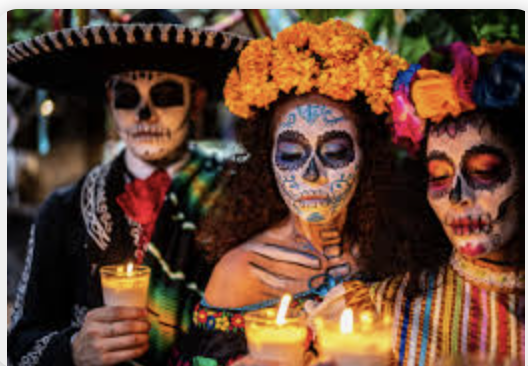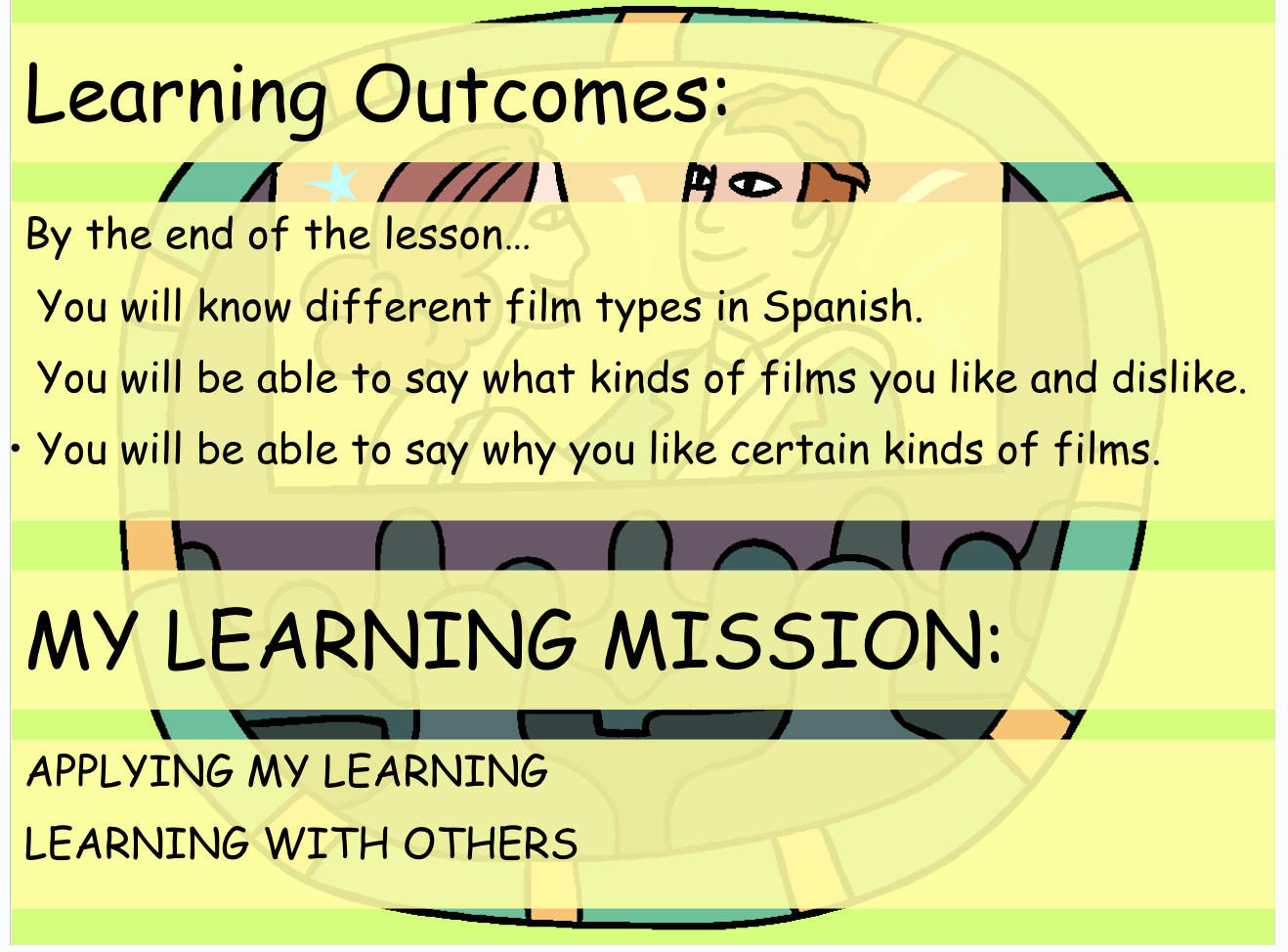10 Spanish 1
Section outline
-
Bienvenidos a la nueva clase 2024! This is going to be an exciting year full of fun, challenges, and lots of good times!

As a Y10SPA1 class I have new expectations for you and for our class, to have a successful year in this class, we need to work together.
Please do not hesitate to contact me at mmartin@mhjc.school.nz if you have any questions or concerns about our planned activities or assessments. You chose to continue Spanish as an optional subject. This means your commitment to the language is strong. We are going to learn Spanish twice a week, you will have two assessments per year. All of you have previous Spanish skills, we have the opportunity to work consistently to improve your Spanish knowledge this year.
-
Opened: Thursday, 25 July 2024, 12:00 AMDue: Thursday, 1 August 2024, 12:00 AM
-
Opened: Friday, 9 August 2024, 12:00 AMDue: Friday, 23 August 2024, 3:00 PM
-
-
EXPLORE / TŪHURA learning intentions:
- We are EXPLORING to ask and respond to information about events in the present
- We are EXPLORING to understand and talk about where, when, and how often activities take place
- We are EXPLORING ask for and respond to simple directions
- We are EXPLORING to compare and contrast people, places, and things.
Hola chicos y chicas!
GROUP 1
We are going to start our Spanish context "All about you".


Learning Intention:
We are learning to ask and respond to personal information
Success Criteria:
Identify vocabulary for countries, at least 12 countries
I can say where I am from and give my nationality and where I live I can ask someone else where they are from and their nationality and where they live Apply the rules for verb ser. Activities:
- ¿De dónde eres?
- ¿Cuál es tu nacionalidad?
- ¿Dónde está Wally?
- Personal activity
-
FOCUS / ARONGA learning intentions:
- We are FOCUSING on evolving the use of familiar expressions and everyday vocabulary.
- We are FOCUSING on reinforcing to interact simply in supported situations.
- We are FOCUSING describe aspects of their own background and immediate environment in Spanish
Learning Intentions:
- Review familiar expressions and everyday vocabulary in Spanish.
- Enhance comprehension and fluency in using common Spanish phrases.
- Strengthen communication skills for everyday situations in Spanish-speaking contexts.
Success Criteria:
- Identify and understand a variety of familiar expressions and everyday vocabulary in Spanish.
- Demonstrate the ability to use reviewed expressions and vocabulary accurately in context.
- Engage in conversations using the reviewed expressions and vocabulary with confidence and clarity.
- Apply the learned expressions and vocabulary in practical scenarios
- Participate actively in activities and discussions to reinforce learning and retention of expressions and vocabulary.
1. REVISION-LOS BASICOS GOOGLE CLASSROOM
2. REVISION FELIZ CUMPLEAÑOS -
EXPLORE / TŪHURA learning intentions:
- We are EXPLORING to recognize, express, and ask about likes and dislikes by having the language input of Free time-Tiempo libre
- We are EXPLORING to listening the Spanish language by being exposed to dialogues and information
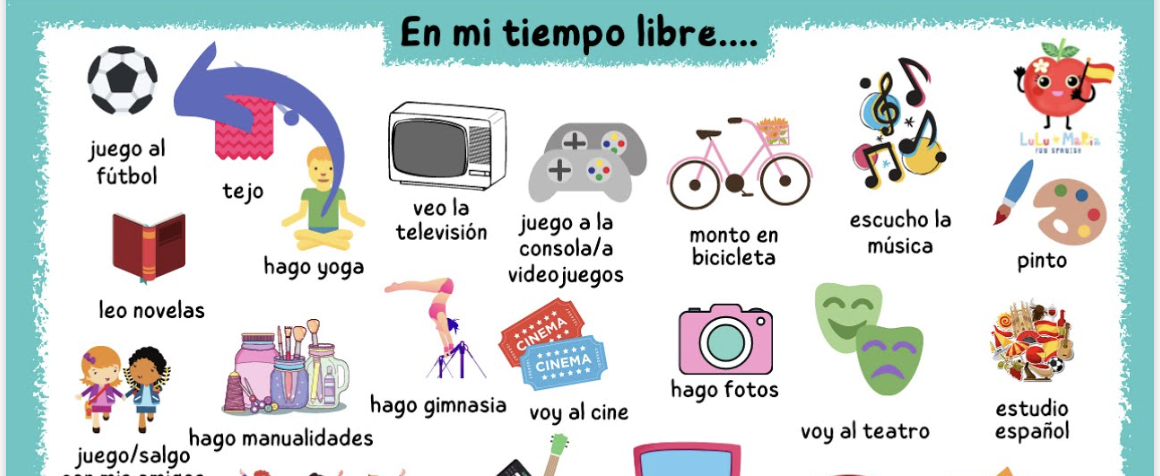
Learning Intentions:
- Review familiar expressions and everyday vocabulary related to "Tiempo Libre" (Free Time) in Spanish.
- Develop the ability to discuss leisure activities and preferences in Spanish.
- Enhance vocabulary and fluency in expressing likes, dislikes, and interests related to leisure time.
Success Criteria:
- Identify and understand a range of vocabulary related to leisure activities in Spanish, including hobbies, sports, entertainment, and pastimes.
- Demonstrate the ability to use reviewed expressions and vocabulary accurately to describe leisure activities and preferences.
- Engage in conversations about free time activities in Spanish, expressing likes, dislikes, and preferences with appropriate vocabulary and grammar.
- Describe past experiences and future plans related to leisure activities using the learned vocabulary and expressions.
- Participate actively in role-plays, discussions, and activities to practice using the reviewed vocabulary and expressions in context.
- Create and share personal reflections or presentations about favorite leisure activities, incorporating the learned vocabulary and expressions effectively.
-
Enter text here...
FOCUS / ARONGA learning intentions:
- We are FOCUSING on developing dialogues where students communicate their plans for free time activities based on the weather forecast.
- We are FOCUSING adapting short paragraphs in Spanish describing their favorite free time activities for different weather conditions, using the vocabulary and expressions introduced in the lesson
Enter text here...
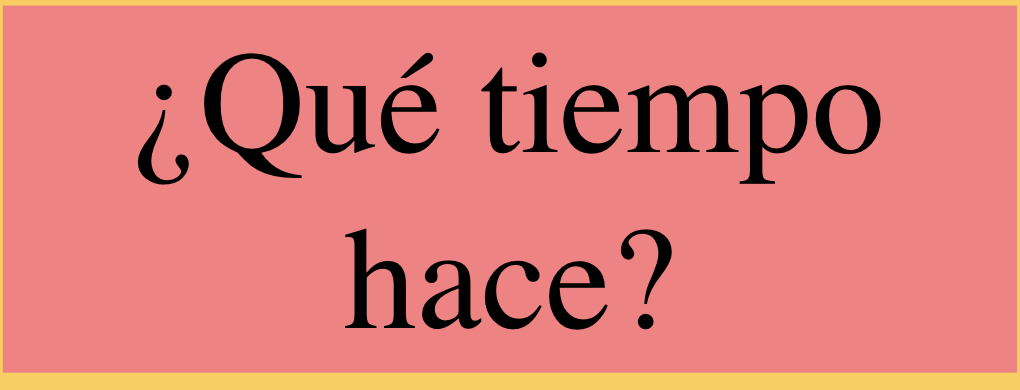 This week we will focus on the weather.
This week we will focus on the weather.- Identify and understand common weather vocabulary in Spanish.
- Describe the weather using appropriate expressions and adjectives in Spanish.
- Engage in conversations about the weather in Spanish with peers.
Success Criteria:
Vocabulary Recognition:
- Students can identify and understand at least 10 weather-related vocabulary words in Spanish, including:
- Sol (sun)
- Nubes (clouds)
- Lluvia (rain)
- Nieve (snow)
- Viento (wind)
- Tormenta (storm)
- Calor (heat)
- Frío (cold)
- Templado (mild)
- Niebla (fog)
- Students can identify and understand at least 10 weather-related vocabulary words in Spanish, including:
Expression of Weather:
- Students can use appropriate Spanish expressions to describe different types of weather, such as:
- Hace sol (It's sunny)
- Está nublado (It's cloudy)
- Está lloviendo (It's raining)
- Está nevando (It's snowing)
- Hace viento (It's windy)
- Hay tormenta (There's a storm)
- Hace calor (It's hot)
- Hace frío (It's cold)
- Está templado (It's mild)
- Hay niebla (There's fog)
- Students can use appropriate Spanish expressions to describe different types of weather, such as:
Conversation Skills:
- Students can engage in simple conversations about the weather with peers, asking and responding to questions such as:
- ¿Qué tiempo hace hoy? (What's the weather like today?)
- ¿Cómo está el clima? (How's the weather?)
- ¿Te gusta este tiempo? (Do you like this weather?)
- ¿Qué tiempo hará mañana? (What will the weather be like tomorrow?)
- ¿Qué tiempo hace en tu país? (What's the weather like in your country?)
- Students can engage in simple conversations about the weather with peers, asking and responding to questions such as:
Accuracy and Fluency:
- Students demonstrate accuracy in their use of weather vocabulary and expressions, with minimal errors in pronunciation and grammar.
- Students speak with fluency and confidence when discussing the weather in Spanish, using appropriate intonation and expression.
Engagement and Participation:
- Students actively participate in class activities, such as weather discussions, role-plays, and games, demonstrating enthusiasm for learning Spanish vocabulary related to weather.
- We are FOCUSING on developing dialogues where students communicate their plans for free time activities based on the weather forecast.
-
EXPLORE / TŪHURA learning intentions:
- We are EXPLORING to ask and respond to information about events in the present
- We are EXPLORING to understand and talk about where, when, and how often activities take place
- We are EXPLORING ask for and respond to simple directions
- We are EXPLORING to compare and contrast people, places and things.
These weeks we will be looking at HOLIDAYS-VACACIONES.
SUCCESS CRITERIA
I will be able to say where I go on holiday.
I will be able to use opinions and justifications to describe where I go on holiday.
I will be able to write a paragraph about where I go on holiday, how I get there and who with.
ACTIVITIES
1. Flipchart
2. VOCABULARIO-LANGUAGE FEATURES
3. MATCH
4. TRANSLATE
5. UNJUMBLE
6. CONJUGATION7. KINAESTHETIC
8. CREATE YOUR OWN PARAGRAPH
-
PLAN & DO / WHAKAMAHI learning intentions:
- We are PLANNING to make a short movie in Spanish so that we can show our Spanish language proficiency, cultural engagement and collaboration in a creative way.
Enter text here...
Objective:
To showcase linguistic proficiency and creative expression through filmmaking in Spanish
.
Task Description:
You will participate in a film competition where you will create a 2-3 minute film entirely in Spanish. The film should demonstrate your language skills at their curriculum level while also showcasing creativity and storytelling abilities.
-
EXPLORE / TŪHURA learning intentions:
- We are EXPLORING to ask and respond to information about events in the present
- We are EXPLORING to understand and talk about where, when, and how often activities take place
- We are EXPLORING ask for and respond to simple directions
- We are EXPLORING to compare and contrast people, places and things.
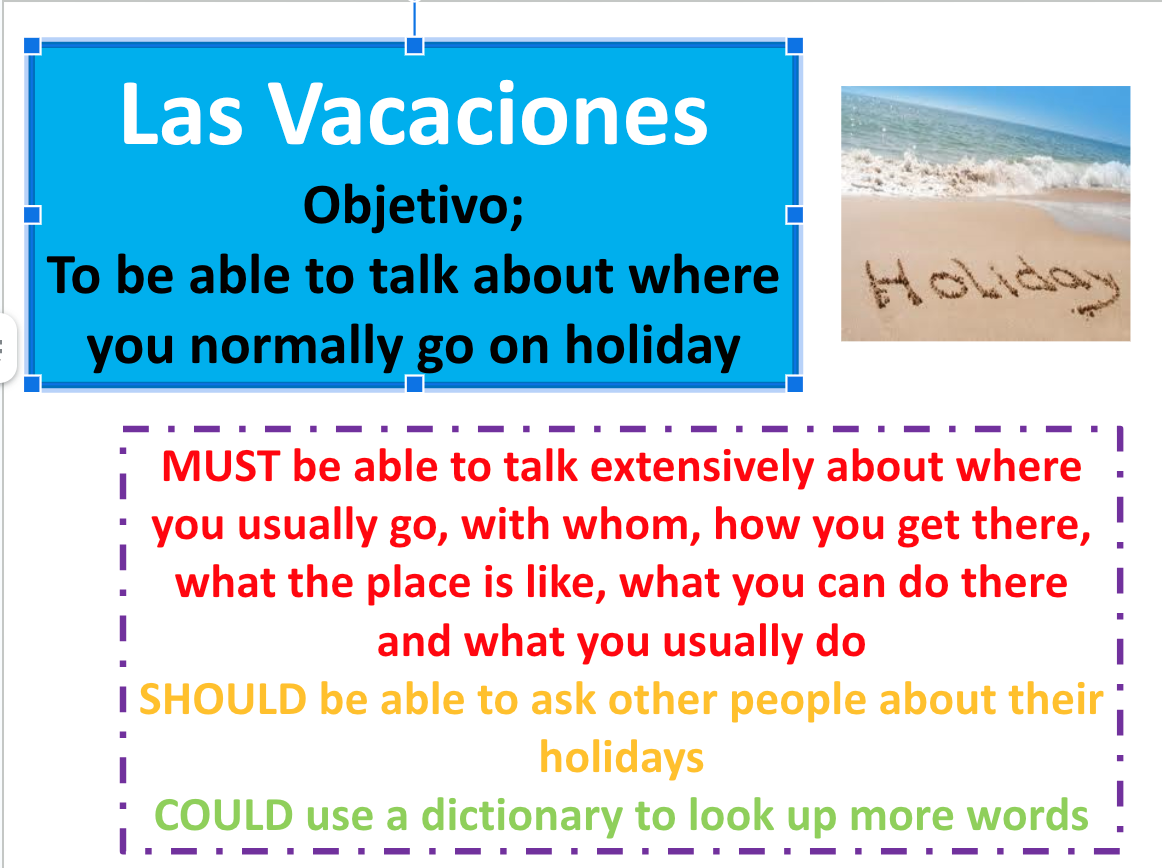
ACTIVITIES
1. Vocabulary
2. Writing frames
3. Reading activity
4. Speaking activity
5. Une los adverbios de tiempo
6. Fill in the gaps -

Big Idea: MI CIUDAD
Then we will start our context, MI Ciudad, where we will learn all the necessary for you to express in Spanish what you need if you are in a Spanish-speaking country.
Learning Intentions:
- We are learning to state and ask about the existence of places and things in a city
AO Coverage:
Selecting and using language, symbols, and texts to communicateRecognize and describe ways in which the target language is organized.Success Criteria: I can/have...
- Identify vocabulary for places to hang out around town and invitations to hang out
- Describe city features and describe your town and brochures
- Explain how to get to different places
- Apply all the learning using oral skills to a native speaking person
Activities:
- Revision Quiz
- Mi city location and description
- Places in my city
- Places in my city 2
-
FOCUS / ARONGA learning intentions:
- We are FOCUSING on writing a speech in Spanish about New Zealand sightseeing
- We are FOCUSING on using language features to describe New Zealand in Spanish.
- We are FOCUSING ON producing language that could help a Spanish-speaking visitor to get more out of their time in New Zealand
Sightseeing your town, city or area, make a brochure about your city or area.
You could include:
Ways of getting around
Interesting places to visit, food recommendations, or activities to try
What makes your city, town or area unique
Information on an upcoming event that the guest can participate in

-
PLAN & DO / WHAKAMAHI learning intentions:
- We are PLANNING to present our Spanish speech so that we can demonstrate our communication skills using the language features.
MAKE SURE YOUR SCRIPT INCLUDES
Your script could include the following:
What New Zealand is like, and your city in particular
Your opinion about what the students should see and do in New Zealand, with reasons
A description of a tourist activity in New Zealand that you would like to do
Advice on any cultural differences that the students may encounter
Where you will like to go for your next holiday in New Zealand, with reasons
2. Description and places of your city
Hay donde infinitive... There is where ….
Se puede... You can ...
hay mucho que hacer... There is a lot to do
Me gusta/ No me gusta/Me encanta......
Muy very
____ tiene un montón de atracciones como + (nombre).... ______ has tonnes of attractions such as...
La ciudad está lleno de + (nombres) ... The city is full of…
Es famosa por + (nombres) o (infinitivo).... It’s famous for....
Hay lugares de interés como + (nombre).... There are places to visit such as…
Weather:
En + (country) + adverb + Weather expression + season
-
EXPLORE / TŪHURA learning intentions:
- We are EXPLORING the Spanish custom of bullfighting festivals.
- We are EXPLORING representation of bullfighting in art, dance and music.
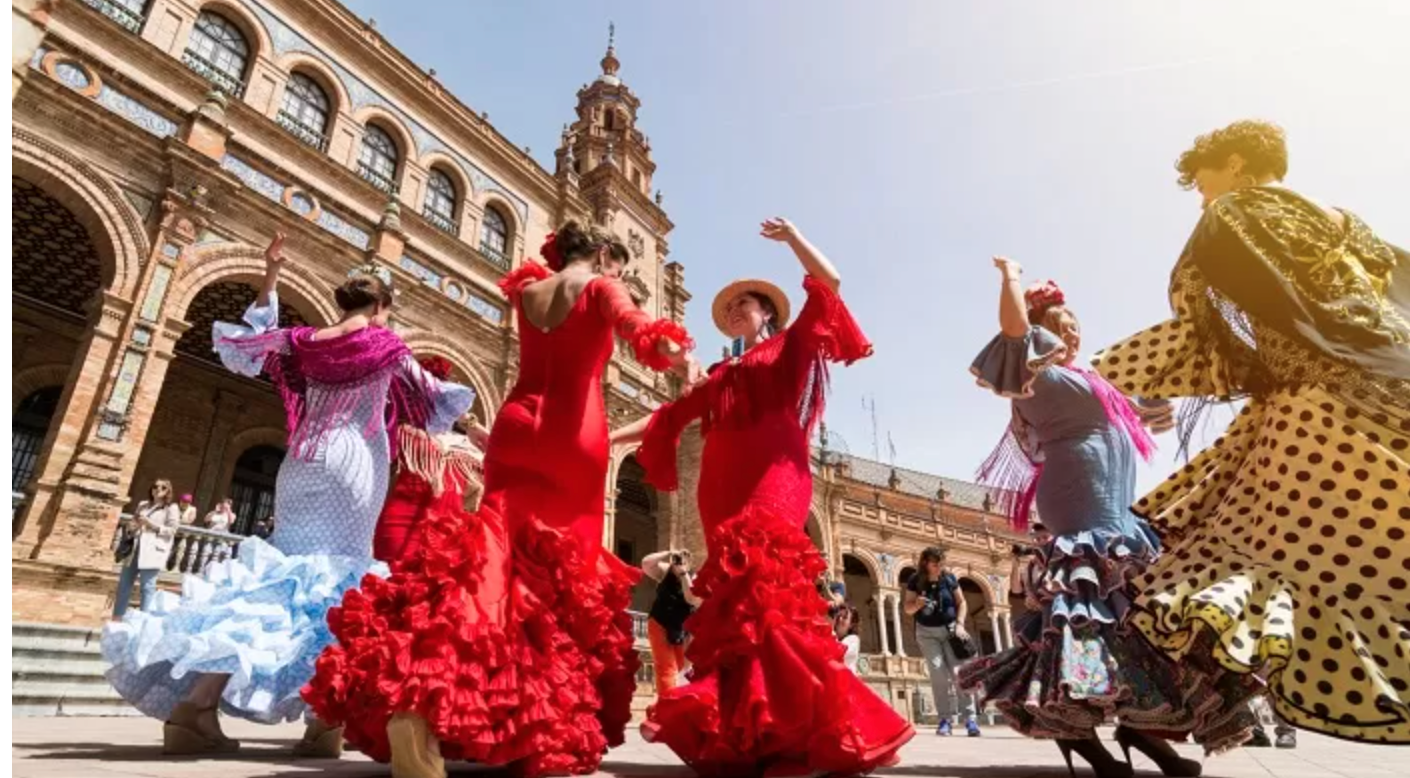
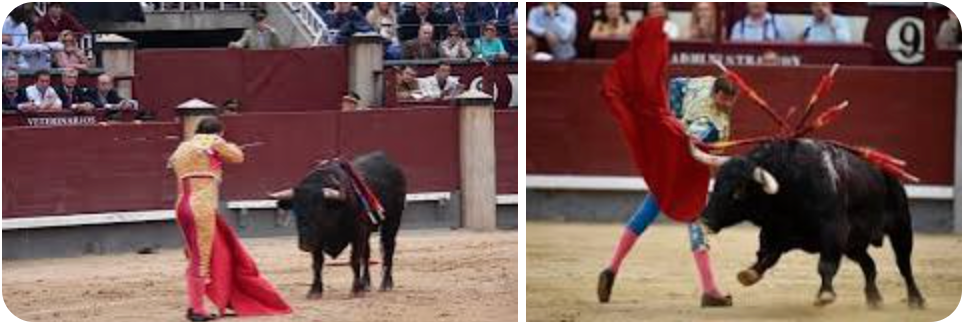
Introduction to Spain
To introduce Spanish cultureActivities
Introduction to bullfighting, watch a video and discuss. (link to literacy)
As a class, re-enact a bullfight.
Find out about the festival of San – Fermin in Pamplona
-
This week we will build our understanding about the celebration El dia de los muertos, and we will focus to distinguish, compare and contrast between Día de los Muertos and Halloween.
Learning Intention:
We are learning to understand of the Mexican celebration of Día de los Muertos.
Success Criteria:
develop an overall understanding of the Mexican holiday, Día de los Muertos, including the history, origins, and significance of this celebration to people of Mexican origin recognize common traditions and activities associated with Día de los Muertos develop an open-mind and respectful attitude towards diverse ethnic groups learn about cultural diversity and multiculturalism in a positive way Activities:
- Comparison with Halloween
- Caption for the images
